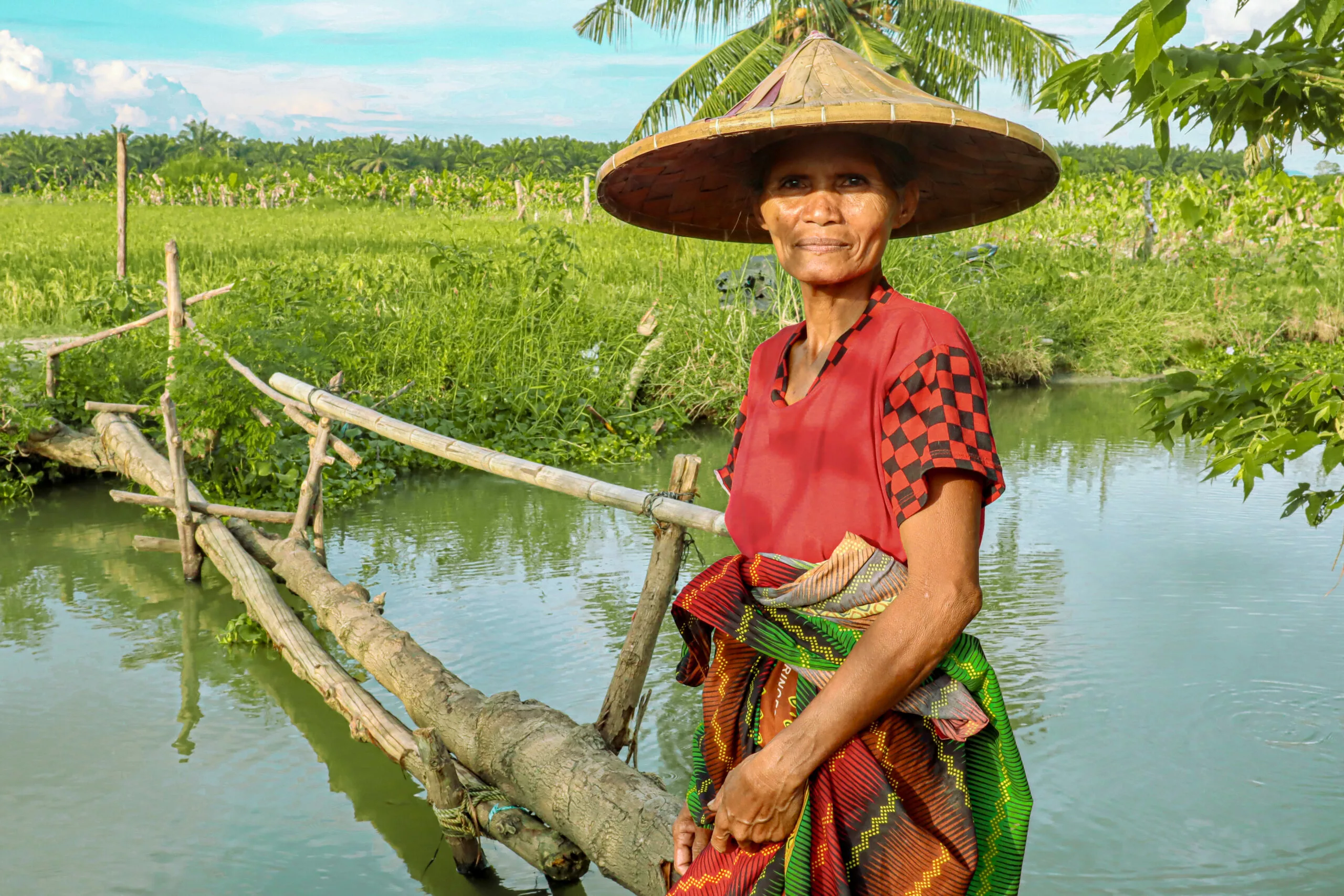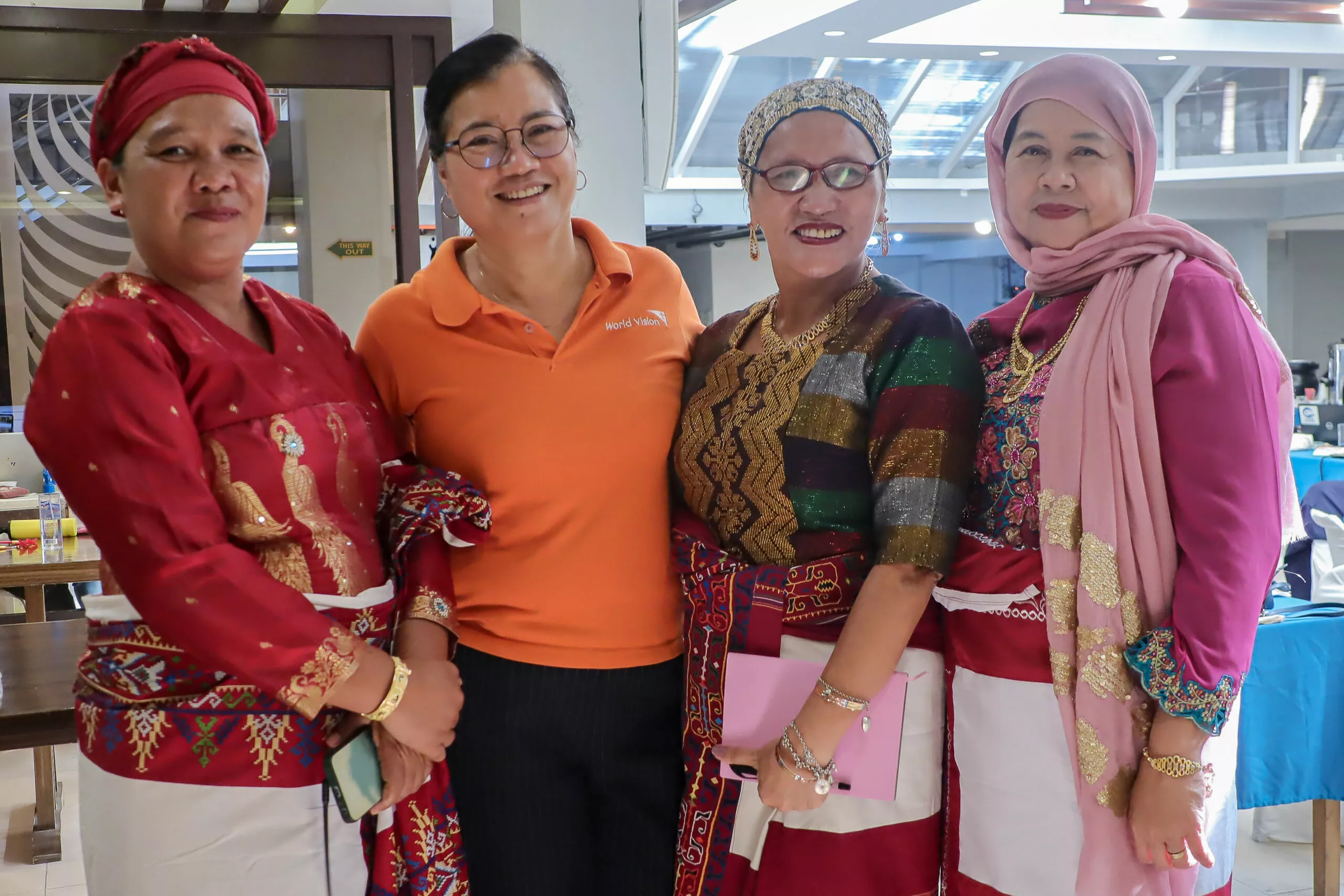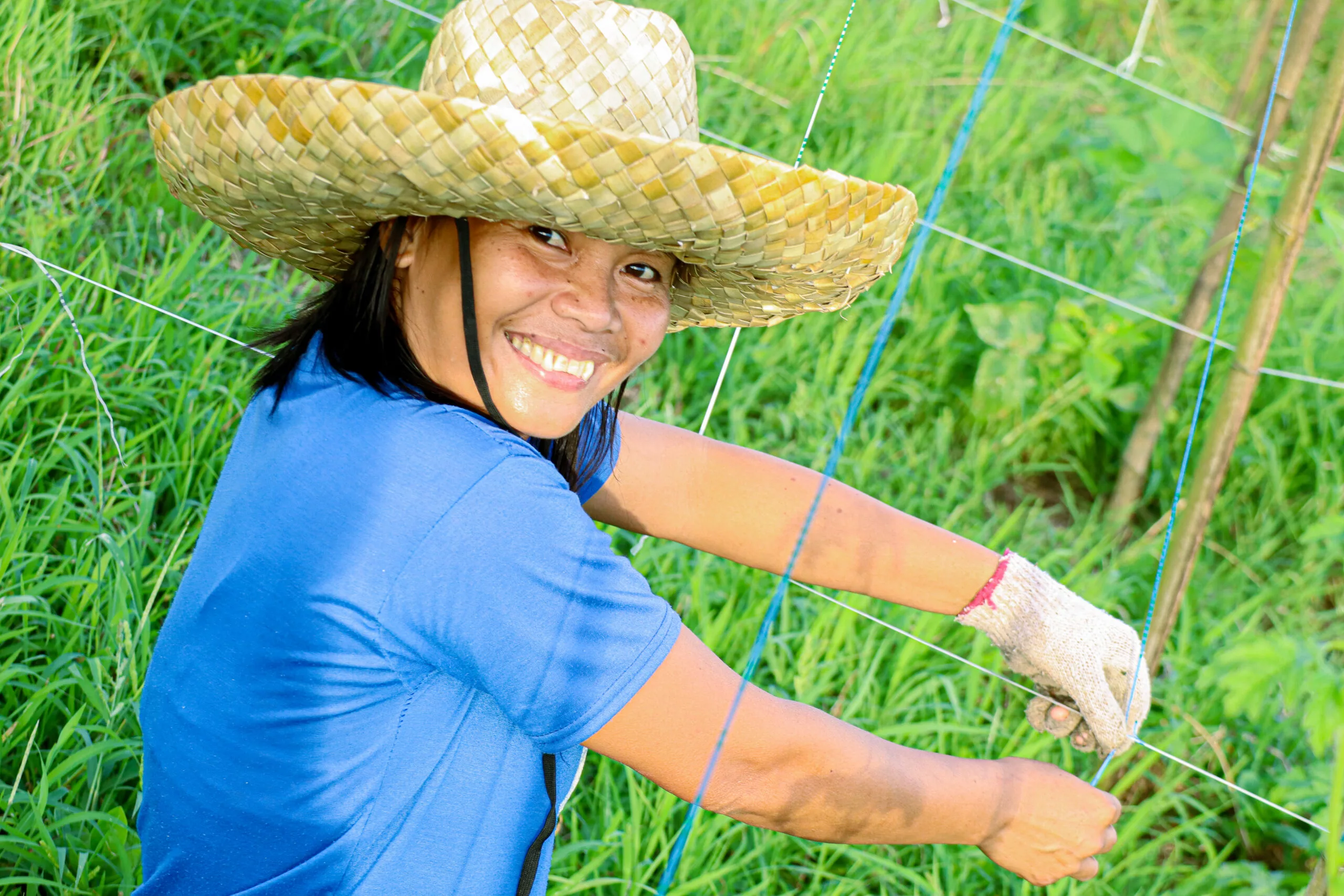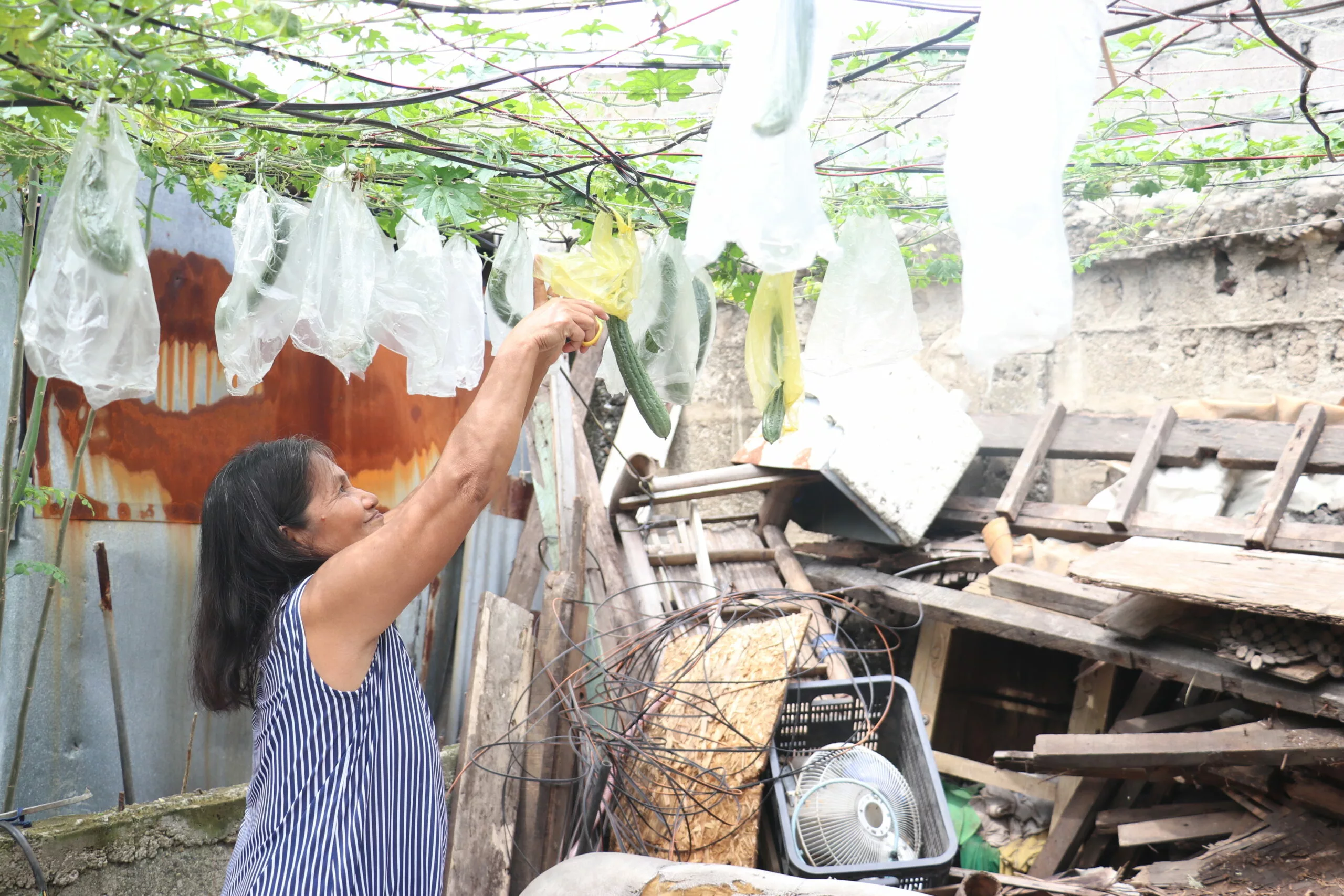Supporting pandemic-hit families with livelihood opportunities
Thanks to the generosity of World Vision sponsors, 9-year old Zeah’s family in South Cotabato, Mindanao can jump start their goat raising project amid the pandemic.
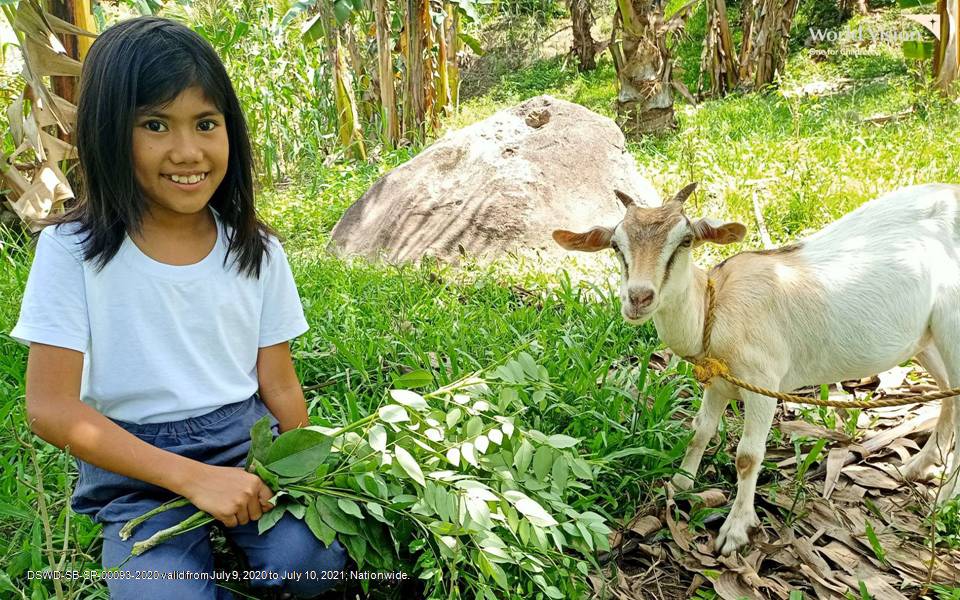
“I named her after my favourite female celebrity – Lisa. Everyday, I help my father in feeding her with madre de cacao leaves,” Zeah shares.
Zeah is the eldest among three. Her mother is a domestic helper in the Middle East while her father, Richard, works at a nearby bakery. Coronavirus limited her mom’s movement abroad and has not been able to send money since March. Richard’s Php1500 (USD30) weekly income, on the other hand, decreased by half.
“I had to adjust the budget for our meals although I’m glad that we have corn, banana and sweet potato crops around. My salary is also not enough to provide all our needs, especially now that my wife cannot send money so I resorted to borrowing money,” explains Richard.
“I understand our situation so I try my best to help my father at home. I help with the laundry, in cleaning the house, cooking and in looking after my younger sibling,” Zeah adds.
When her family received the goat as part of World Vision’s support to their livelihood, Zeah also decided to help her father take care of it. It usually takes a doe (female goat) three to four months before it gives birth and it can be bred every year. A 2-month old doe can be sold at Php 3,000 (USD60) each.
Community engagement for sustainability
World Vision recognises the role of the local government in ensuring that efforts for children’s well-being are sustained. Throughout the process of goat dispersal, the barangay (village) local government unit (BLGU), represented by the Livelihood and Agriculture lead, was present. They also committed to monitor and provide technical support to the families who received the goats.
Likewise, for other families in the community to benefit from the said initiative, each of the first batch of recipients has to give back an already weaned (around 2 to 3-month old) doe to the village within 6 months to 1 year.
“If this prospers, we will have an extra income for our children’s needs, especially now that the school opening is near,” shares Richard.



